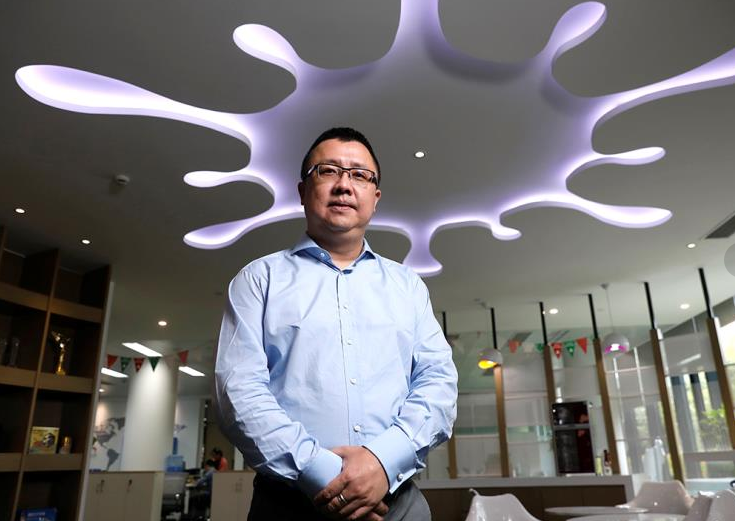Theland New Cloud: Domestic demand to drive China's next wave of growth Release date:2018-08-22

Today’s guest:
Sheng Wenhao, Chairman of the Board of Theland New Cloud
Through an RMB 2.5 billion investment in Theland, an international high-end milk brand from New Zealand, the Shenzhen-listed Hunan Dakang (002505.SZ) became the first Chinese enterprise to own dairy farm assets in New Zealand. Alibaba became the majority shareholder of Theland in December 2017 after investing in the company and increasing its total capital stock.
Theland New Cloud engages mainly in the import business, selling dairy products native to New Zealand, including fresh milk, UHT milk and others, on the Chinese market both online and offline. Besides dairy industry, Hunan Dakang's overseas presence spans coarse cereals in Brazil, mineral water and honey in New Zealand, and cows in Vietnam and Myanmar, all sharing the common characteristic of being fresh.
Q: What are you expecting from the upcoming China International Import Expo? What will you present to Chinese consumers at the expo?
A: Theland will bring competitive and superb products with agro-product geographical indications to the expo, products that consumers may have never been offered before. It is thanks to the import expo that Chinese consumers are exposed to these products.
To enhance our operational transparency and assure consumers of the safety of our products, we will also show consumers our source-to-table supply chain.
We are honored to be given the opportunity to learn more and improve ourselves through the import exp, and let more people know about our brand.
Q: What is Theland's business strategy for the Chinese market? What will be its focus in the next stage?
A: Theland is aimed to build a differentiated global supply chain aggregation platform. It has established an expansive sales network including both online and offline channels by forming upstream and downstream industry chain alliance with no intermediates and has also improved the efficiency all throughout its industry chain with the help of digital technologies and brand service capabilities.
Theland has developed a product portfolio that contains major categories of ready-to-eat foods and FMCG. These include glacial water and Manuka honey from New Zealand, fresh beef from Southeast Asia, and sunflower oil from Russia.
Q: How have the changes in China's business environment affected the company since it entered the Chinese market? What is it that impressed you most?
A: Inspection and quarantine of imported dairy products used to take 7-8 days. Transportation takes time too. By the time the products were rolled out to the Chinese market, they often had less than 50% of their shelf life remaining. This compromised consumer experience and affected our sales, diminishing the competitiveness of superior imported products.
Theland became one of the first companies to be included in China's trade facilitation project this January and has since been enjoying the privilege of speedy customs clearance. Today, it takes only three days for milk to arrive at the tables of Chinese households from Theland's dairy farms in New Zealand.
After cows are milked at 3:00-4:00 on the morning of the first day, the milk is sent to a production plant at 5:00-7:00 for pasteurization and bottling. The end products are inspected before 16:00 and transported to the Auckland Airport by noon the next day. They are then shipped to Pudong International Airport on a China Eastern Airlines-operated flight at 21:00-22:00. The flight lands around 6:00 on the third day, and the products pass customs at 12:00-15:00 before finally arriving at retail outlets at 18:00 the same day.
Q: What will Theland, a multinational enterprise, do to seize growth opportunities in China as the country further opens its market to the world?
A: China is seeing an upwards consumption trend, so I think growth in the future will be driven mainly by domestic demand. China's opening-up lets the world benefit from its consumption upgrade. It's a win-win situation. Chinese consumers are given access to quality products from around the world. Enterprises have a lot to gain from opening-up, too.
Theland settled on three missions for itself at the time of its inception: connecting the Chinese market with global resources, selling dairy products from New Zealand directly through Chinese supermarkets, and enhancing consumer experience through extensive digitization. All three involve linking Chinese consumers to products across the world. These missions are implemented in the context of China’s opening up even further to the world. It is against this background that demand rises for quality products and services from around the globe.